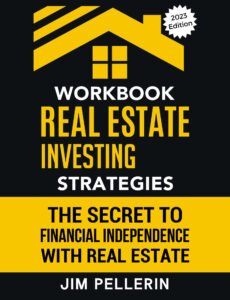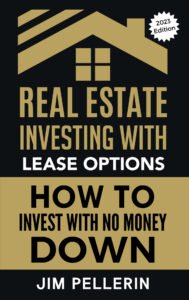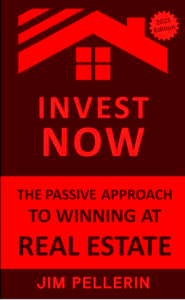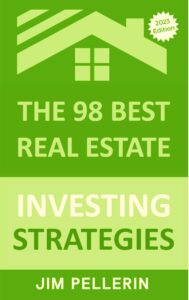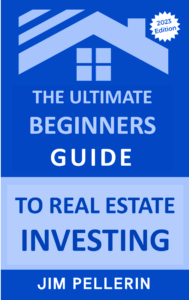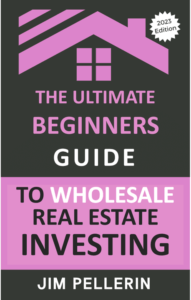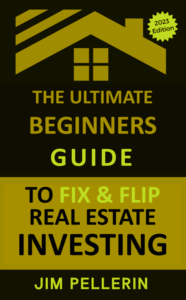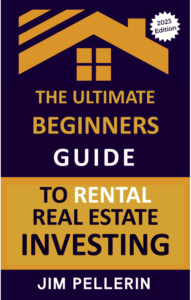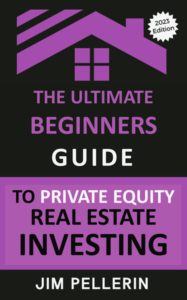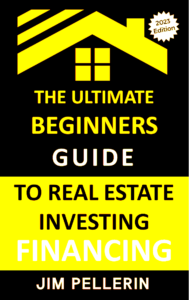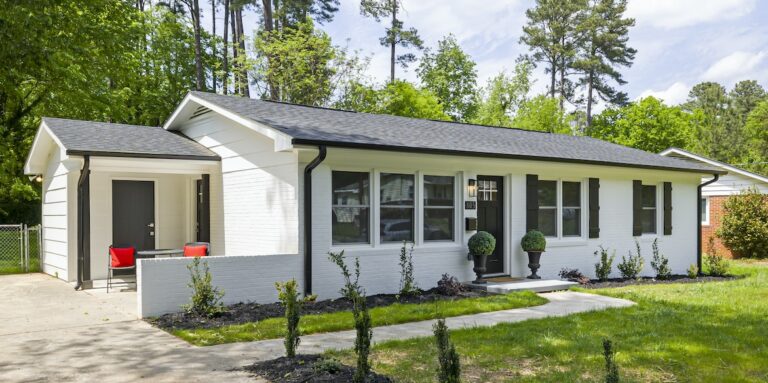The Step-by-Step Guide to Wholesale Real Estate Investing
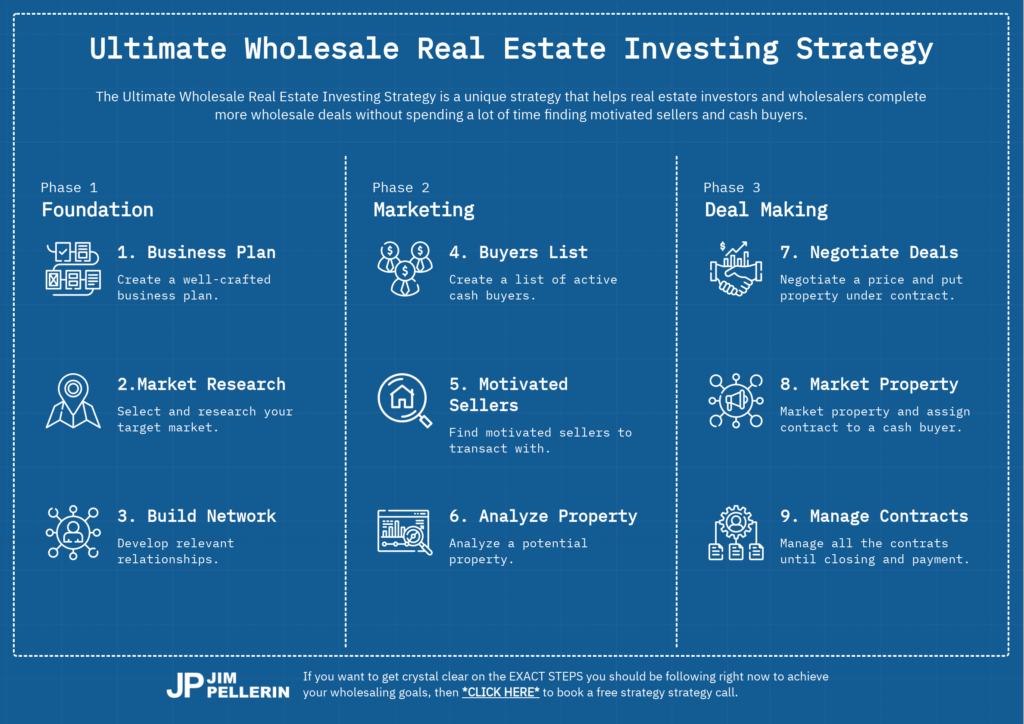
The Ultimate Wholesale Real Estate Investing Strategy is a unique Strategy that helps wholesalers complete more wholesale deals without spending a lot of time looking for motivated sellers, negotiating the best deals, or finding cash buyers to complete more wholesale deals. The following is a step-by-step guide to wholesale real estate investing and are the recommended steps you should follow:
- Develop a Business Plan: Developing a solid business plan is an important first step when starting a wholesale real estate business. It should include a clear vision, mission statement, goals, target market, marketing strategy, budget, and revenue projections. A well-crafted business plan will help you stay focused and organized, as well as provide a roadmap for achieving your business objectives.
- Research the Market: In order to succeed in the wholesale real estate business, it’s important to have a deep understanding of the market where you plan to operate your business. This includes understanding the types of properties that are in demand, the areas that are most attractive to buyers and investors, and the current market trends. You should also research the competition to identify what they’re doing well and what areas they may be overlooking.
- Build a Network: Building a strong network of real estate agents, brokers, investors, attorneys, and other professionals in the industry is crucial for success in the wholesale real estate business. Attend networking events, join local real estate associations, and use social media to connect with potential partners and clients. Having a strong network can provide you with valuable insights, and access to new opportunities, and help you build trust with potential clients.
- Build a Buyer’s List: In addition to identifying potential sellers, you’ll also need to build a list of potential buyers who are interested in purchasing wholesale properties. This list should include investors, rehabbers, and other real estate professionals who are looking for good deals. Building a strong buyer’s list takes time and effort, but it’s essential for success in the wholesale real estate business.
- Find Motivated Sellers: A successful wholesale real estate business requires motivated sellers and a comprehensive marketing plan that includes a variety of tactics to reach sellers. Direct mail, email campaigns, social media marketing, and other tactics can be used to attract motivated sellers who are willing to sell their properties at a discount. Your marketing strategy should be tailored to your target market and budget.
- Analyze Properties: Once you’ve identified potential properties to purchase, it’s important to conduct thorough due diligence to ensure that they’re a good investment opportunity. This includes researching the property’s condition, location, and potential for profitability. You may also want to work with a real estate agent or inspector to evaluate the property.
- Negotiate Deals: The key to success in the wholesale real estate business is being able to negotiate deals with motivated sellers to purchase properties below market value. Your networking skills and market knowledge will be essential in identifying potential sellers and negotiating favorable terms.
- Market Properties: Once you have acquired a property, you’ll need to market it to potential buyers. This involves highlighting the benefits of each property and providing detailed information about its condition, location, and potential for profitability. Using effective marketing tactics such as targeted email campaigns, social media advertising, and open houses can help you reach potential buyers and close deals quickly.
- Manage Contracts: Once you have a buyer for a property, it’s important to manage the closing process to ensure that all parties are meeting their obligations. This includes working with a reputable title company or attorney to manage the closing process and ensuring that all necessary documents are signed and filed appropriately.
- Repeat: Finally, it’s important to repeat the process by identifying new properties, negotiating deals, and marketing to potential buyers. Over time, you’ll build a successful wholesale real estate business that provides you with a steady stream of income. However, it’s important to stay informed about the latest market trends and continue building your network to stay competitive in the industry.
Step 1 – Develop a Business Plan
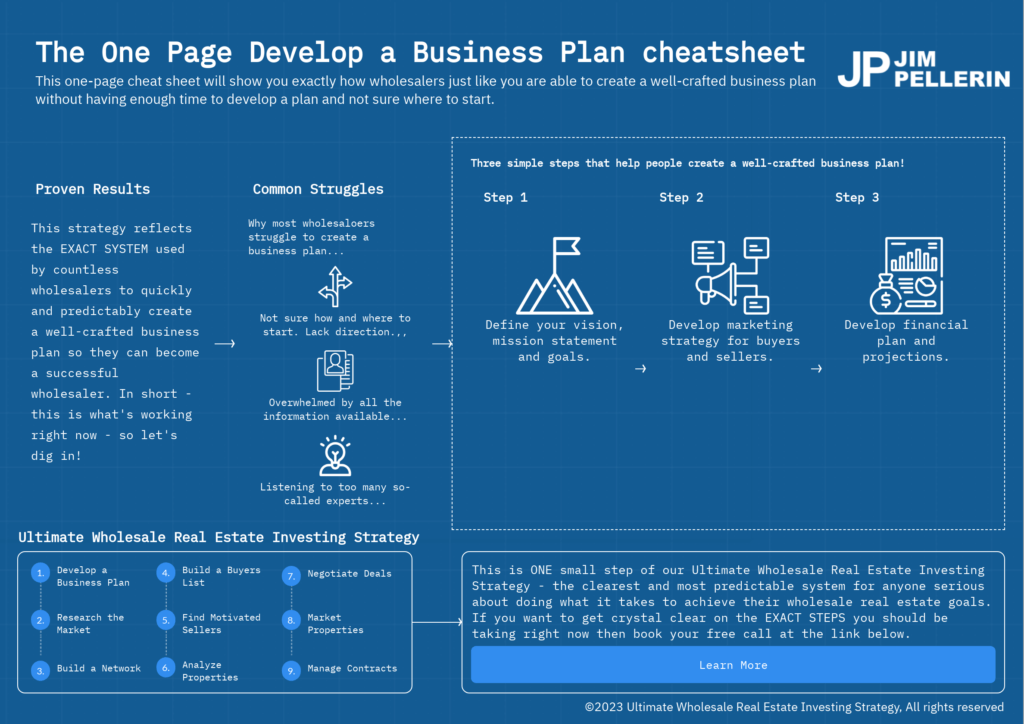
Developing a solid business plan is crucial when starting any business, including a wholesale real estate business. A well-crafted business plan can serve as a roadmap for achieving your business objectives and help you stay organized and focused. Here are some key elements to consider when developing a business plan for your wholesale real estate business:
- Executive Summary: This section should provide an overview of your business, including your mission statement, vision, and goals.
- Company Description: Describe your business in more detail, including the type of properties you plan to wholesale, the geographic area you plan to serve, and any unique selling points that differentiate you from competitors.
- Market Analysis: This section should provide a high-level analysis of the real estate market in your target area, including current market trends, the demand for wholesale properties, and any potential challenges or obstacles.
- Marketing Strategy: Outline your marketing strategy and tactics, including how you plan to reach potential sellers and buyers, what channels you will use, and any promotional activities you plan to undertake.
- Financial Projections: Create financial projections based on your revenue expectations, operating expenses, and start-up costs. This should include cash flow projections, profit and loss statements, and balance sheets.
- Management Team: Describe the management team that will be responsible for running the business, including their backgrounds, skills, and experience.
- Legal Structure: Determine the legal structure of your business, such as whether you will operate as a sole proprietorship, partnership, LLC, or corporation.
- Funding Needs: If you plan to seek funding to start or grow your business, outline your funding needs and how you plan to use the funds.
- Risk Management: Identify potential risks and challenges that may impact your business and create a plan for how you will mitigate these risks.
- Exit Strategy: Determine your exit strategy, such as whether you plan to sell the business, transfer ownership to a family member, or retire.
Developing a business plan can be time-consuming, but it’s an essential step in starting a wholesale real estate business. A well-crafted plan will help you clarify your business goals, assess the market, and create a roadmap for success. It will also provide a framework for measuring your progress and making adjustments as needed.
Step 2 – Research the Market
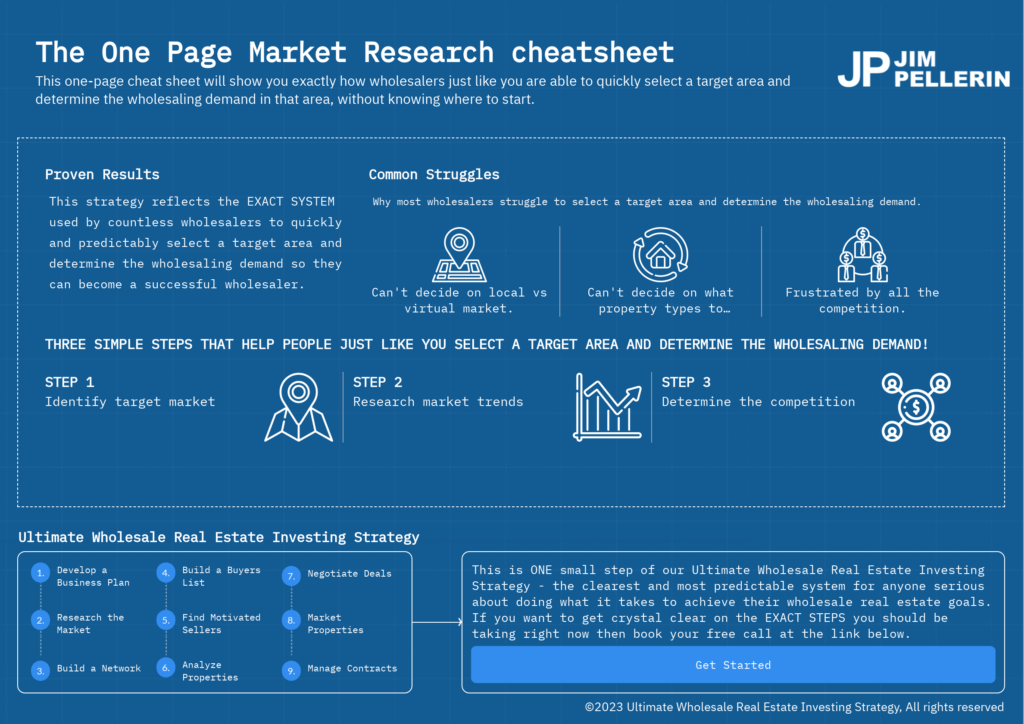
Researching the market is an important step when starting a wholesale real estate business. It will help you understand the demand for properties in your target area and determine what types of properties are in demand. Here are some steps to take when researching the market for your wholesale real estate business:
- Identify Your Target Area: Start by identifying the geographic area in which you plan to operate. This could be a city, county, or region. Once you have identified your target area, research the real estate market in that area.
- Analyze Real Estate Trends: Use real estate data and analytics tools to analyze the trends in your target area. This could include data on home prices, inventory levels, days on market, and other key indicators. Look for patterns and trends in the data that may indicate whether the market is growing or contracting, and identify any areas where there may be opportunities to find wholesale properties.
- Research Demographics: Study the demographics of the area to understand who your potential buyers and sellers may be. Look for information on population trends, income levels, education levels, and other relevant factors that could impact the real estate market.
- Identify Local Real Estate Agents: Get in touch with local real estate agents who can provide valuable insights into the market. Ask them about their experience working with wholesale real estate investors and find out what types of properties are in demand in the area.
- Attend Real Estate Networking Events: Attend real estate networking events in your area to meet other investors, agents, and industry professionals. These events can be a great way to learn about the local market and make connections with potential partners and clients.
- Research Local Laws and Regulations: Be sure to research local laws and regulations related to wholesale real estate investing in your target area. This could include zoning laws, building codes, and other regulations that could impact your ability to wholesale properties.
By researching the market, you can gain a better understanding of the demand for wholesale properties in your target area and identify opportunities to find properties that meet the needs of potential buyers. This information will be critical as you develop your marketing and acquisition strategies.
Step 3 – Build a Network
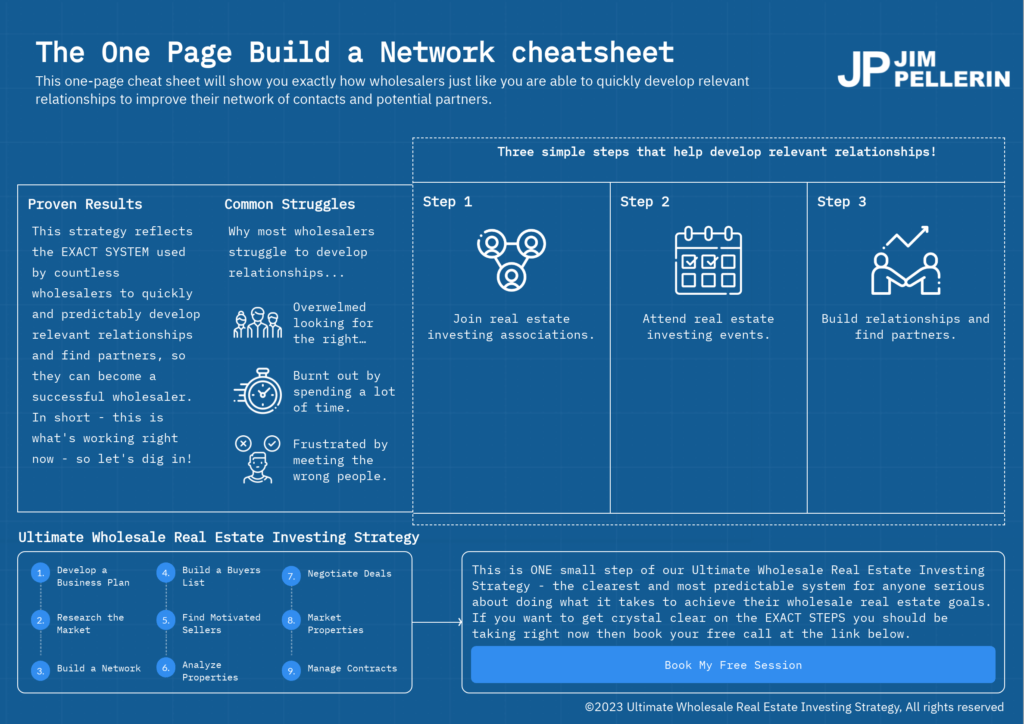
Building a network of contacts is an essential step when starting a wholesale real estate business. A strong network can help you find potential buyers and sellers, and build your reputation in the industry. Here are some steps you can take to build your network:
- Join Real Estate Associations: Join local and national real estate investors associations, such as the local Real Estate Investors Association. These associations can provide valuable networking opportunities and resources for real estate professionals.
- Attend Real Estate Conferences: Attend real estate conferences and seminars to meet other investors, brokers, and industry professionals. These events can be a great way to learn about the latest trends and best practices in the industry.
- Network Online: Use social media and online forums to connect with other real estate professionals. Join LinkedIn and Facebook groups and participate in online discussions related to real estate investing.
- Partner with Real Estate Agents: Build relationships with real estate agents who can help you find potential buyers and sellers. Offer to refer clients to them in exchange for referrals to wholesale properties.
- Build Relationships with Wholesalers: Network with other wholesale real estate investors to share leads and build relationships for potential joint ventures. Join local wholesaling groups or start your own mastermind group.
- Attend Local Real Estate Meetups: Attend local real estate meetups and networking events to connect with other investors, agents, and industry professionals in your area.
Building a strong network of contacts can take time and effort, but it is essential for success in the wholesale real estate business. By connecting with other professionals in the industry, you can build your reputation, find potential buyers and sellers, and stay up to date on the latest trends and best practices in the industry.
Step 4 – Build a Buyers List
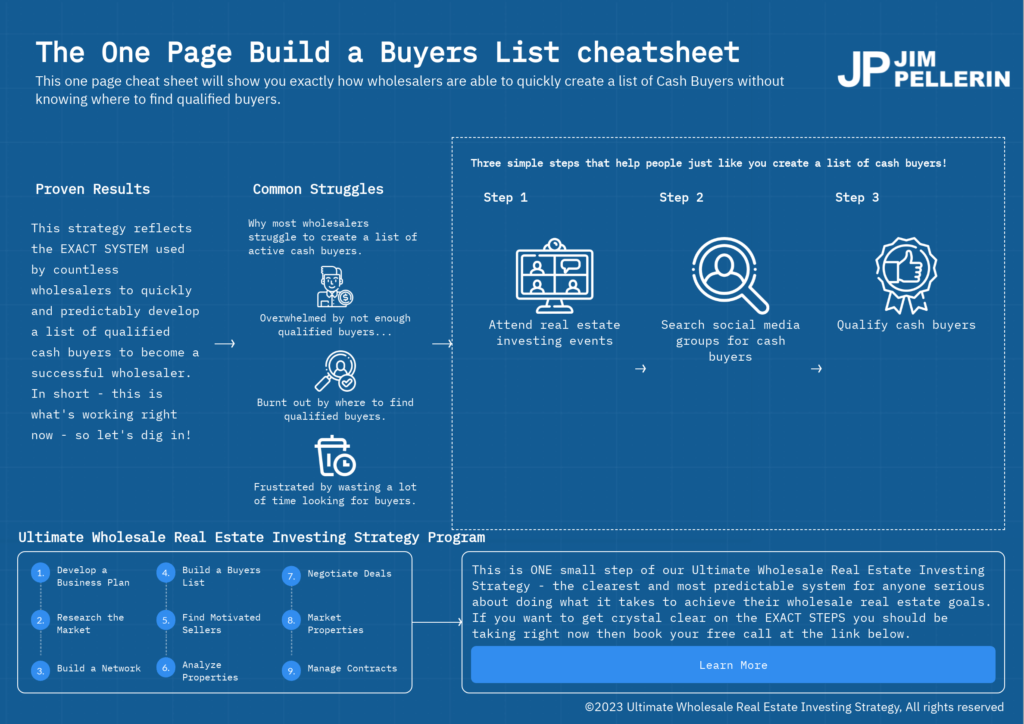
Building a buyer’s list is an essential step in the wholesale real estate business. A buyer’s list is a database of potential buyers who are interested in purchasing properties from you. Here are some steps you can take to build a buyer’s list:
- Attend Real Estate Meetups: Attend real estate meetups and networking events to meet potential buyers. Bring business cards and be prepared to share information about your wholesale real estate business and the properties you have available.
- Use Social Media: Use social media platforms like Facebook Groups, LinkedIn, and Twitter to connect with potential buyers. Post about the properties you have available and share industry news and insights to build your brand and attract potential buyers.
- Place Ads: Place ads on Craigslist, Facebook Marketplace, and other online platforms to attract potential buyers. Make sure to include details about the properties you have available, the asking price, and any other relevant information.
- Reach Out to Real Estate Agents: Real estate agents often work with buyers who are interested in purchasing investment properties. Reach out to local agents and let them know about the properties you have available. Offer them a commission for bringing a buyer to the table.
- Attend Real Estate Auctions: Attend real estate auctions to meet potential buyers who are interested in purchasing investment properties. Bring business cards and be prepared to share information about your wholesale real estate business.
- Use Email Marketing: Use email marketing to keep in touch with potential buyers. Collect email addresses through your website, social media groups, or networking events, and send regular newsletters or updates about properties you have available.
Building a buyer’s list takes time and effort, but it is essential for success in the wholesale real estate business. By attending networking events, using social media, placing ads, reaching out to real estate agents, attending auctions, hosting open houses, and using email marketing, you can build a strong buyer’s list and generate leads for your wholesale real estate business.
Step 5 – Find Motivated Sellers

Finding motivated sellers is a crucial step in starting a successful wholesale real estate business. A well-crafted marketing plan can help you reach potential sellers, generate leads, and build your brand in the industry. Here are some steps you can take to create a marketing plan for motivated sellers for your wholesale real estate business:
- Identify Your Target Audience: The first step in creating a marketing plan is to identify your target audience. Who are you trying to reach? Are you targeting foreclosures, vacant homeowners, or disgruntled landlords? Once you have identified your target audience, you can create a message that will resonate with them.
- Develop Your Brand: Develop a brand that is professional and memorable. This includes creating a logo, website, business cards, and other marketing materials that represent your business.
- Create a Website: A website is an essential tool for any business, including a wholesale real estate business. Your website should be easy to navigate, provide information about your services, and include contact information.
- Use Social Media: Social media platforms such as Facebook, Twitter, and Instagram can be great tools for marketing your wholesale real estate business. Use social media to share information about your business, post pictures of past properties, and engage with potential sellers.
- Develop Content: Creating content such as blog posts, videos, and infographics can help establish your business as an authority in the industry. Share your content on your website and social media channels to reach a wider audience.
- Use Direct Mail: Direct mail campaigns can be a cost-effective way to reach potentially motivated sellers. Consider sending postcards or letters to targeted lists of homeowners or investors.
- Offer Referral Incentives: Offer referral incentives to encourage satisfied clients and business partners to refer others to your wholesale real estate business.
- Monitor Your Results: Keep track of your marketing efforts and their results. This will allow you to determine what is working and what needs improvement. Use this information to adjust your marketing plan and continue to improve your efforts.
Creating a marketing plan for your wholesale real estate business takes time and effort, but it is essential for reaching motivated sellers and building your brand in the industry. By identifying your target audience, developing your brand, and using a variety of marketing tactics, you can generate leads and build your business.
Step 6 – Analyze Properties
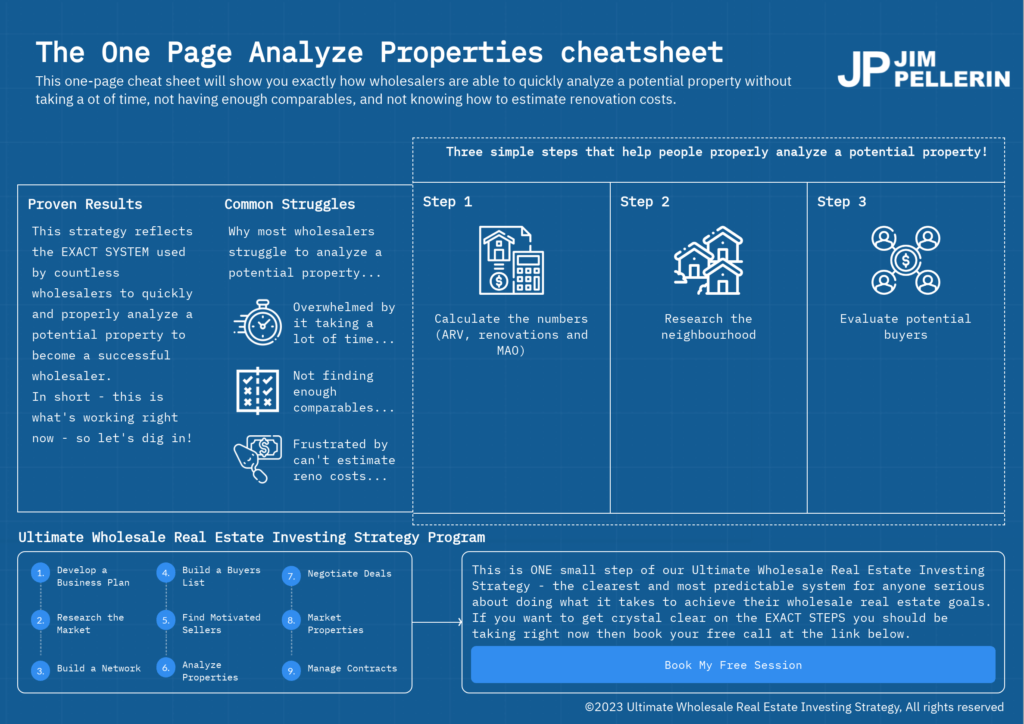
Analyzing properties is a crucial step in the wholesale real estate business. It is important to carefully evaluate each property you are considering for purchase to ensure that it is a good investment. Here are some steps you can take to analyze properties:
- Determine the After Repair Value (ARV): The ARV is the estimated value of the property after it has been renovated or repaired. This is an essential factor in determining whether a property is a good investment.
- Evaluate the Repairs Needed: Determine what repairs are needed for the property and estimate the cost of those repairs. This will help you determine whether the property is a good investment and whether you can make a profit on the deal.
- Research the Neighborhood: Research the neighborhood where the property is located. Look at recent sales of similar properties, crime rates, schools, and other factors that could affect the value of the property.
- Determine the Purchase Price: Based on the ARV and the cost of repairs, determine the maximum allowable offer (MAO) you are willing to pay for the property. This should leave room for profit when you assign the property to a buyer.
- Evaluate Potential Buyers: Consider the types of buyers who may be interested in the property. This can help you determine how much profit you can make on the deal and how quickly you can sell the property.
- Calculate the Expected Profit: Based on the ARV, the cost of repairs, and the potential buyers, calculate the expected profit on the deal. This will help you determine whether the property is a good investment and whether you should move forward to the next step.
Analyzing properties takes time and effort, but it is essential for success in the wholesale real estate business. By carefully evaluating each property you are considering for purchase, you can ensure that it is a good investment and that you can make a profit on the deal.
Step 7 – Negotiate Deals
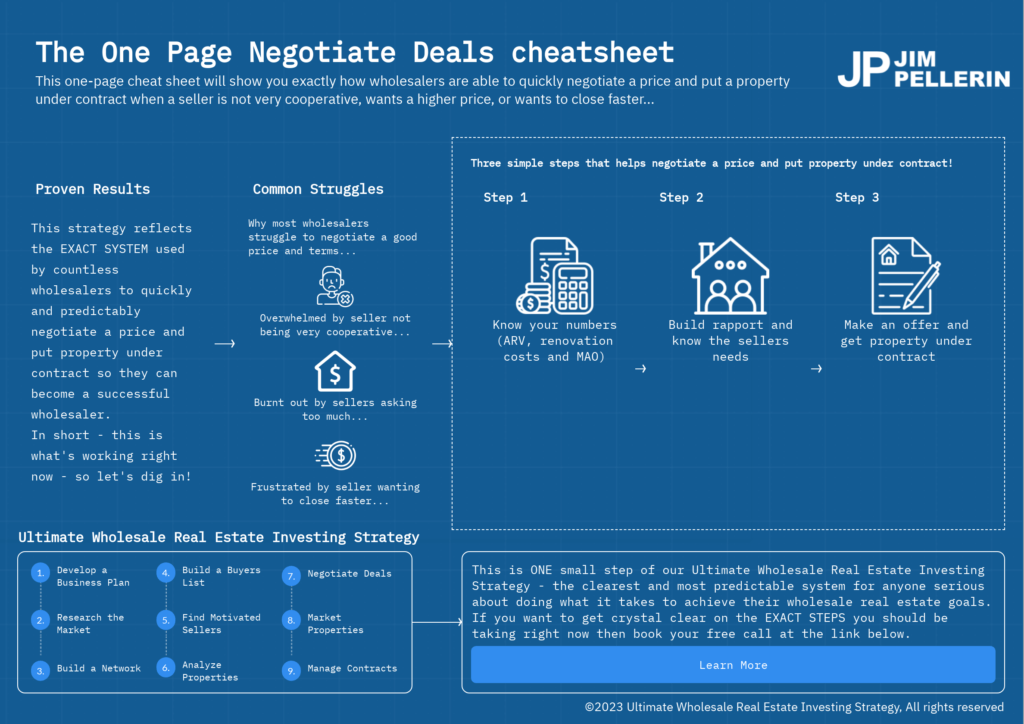
Negotiating deals is a critical skill for success in the wholesale real estate business. As a wholesaler, you are essentially a middleman, connecting motivated sellers with potential buyers. Here are some steps you can take to negotiate deals effectively:
- Know Your Numbers: It is essential to know your numbers and have a clear understanding of what a property is worth, what repairs are needed, and what the after-repair value (ARV) is. This will give you leverage in negotiations and help you determine what price you can offer (MAO) to the seller while still leaving room for profit.
- Build Rapport: Building a good relationship with the seller can help you negotiate a better deal. Take the time to get to know the seller and build rapport. Ask about their situation and why they are selling the property. This can help you understand their motivations and negotiate a better deal.
- Understand the Seller’s Needs: Understanding the seller’s needs is crucial for negotiating a successful deal. Determine what is most important to the seller – price, speed of sale, or another factor – and use this information to negotiate a deal that works for both parties.
- Make an Offer: Once you have a clear understanding of the property and the seller’s needs, make an offer. Start with a low offer and be prepared to negotiate. Remember that your goal is to get a good deal that leaves profit for the potential buyer.
- Be Flexible: Negotiations can be complex and involve a lot of back and forth. Be flexible and willing to compromise to reach a deal that works for both parties.
- Use Creative Financing: In some cases, creative financing can help you close a deal. Consider asking for seller financing, lease options, or other creative financing options to make the deal more attractive to the ultimate buyer.
- Place Property Under Contract: If you are able to negotiate a price and terms that are favorable to you and a potential buyer, then place the property under contract. This means executing a purchase and sale agreement between you and the seller.
Negotiating deals takes time, patience, and skill. By building rapport with the seller, understanding their needs, and being flexible in negotiations, you can negotiate successful deals and build a successful wholesale real estate business.
Step 8 – Market Properties
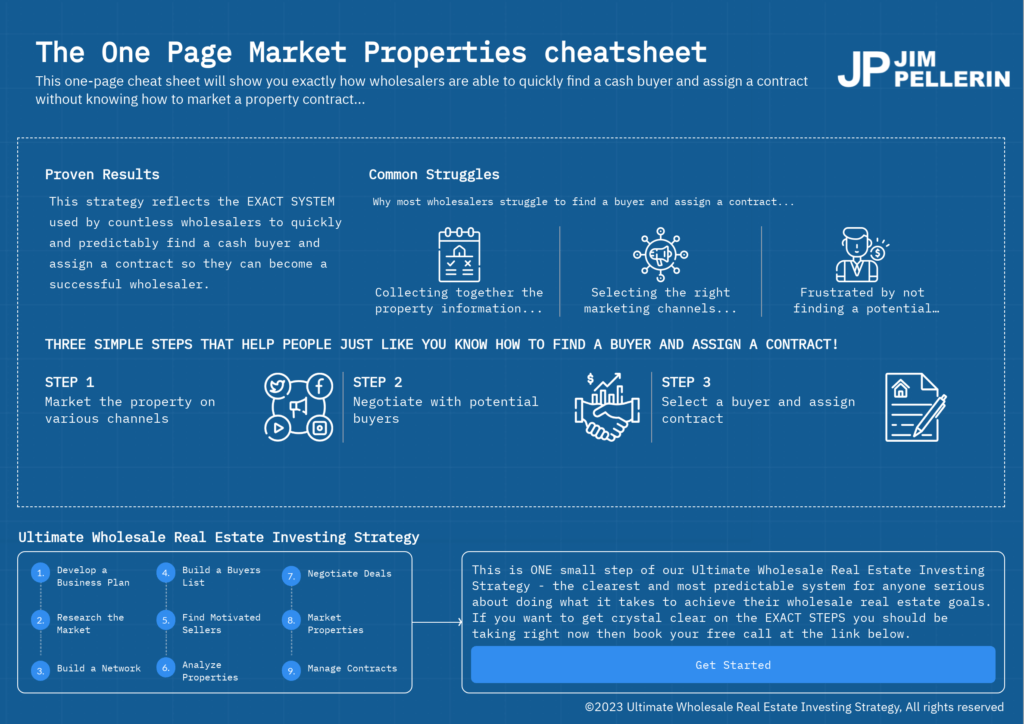
Marketing properties is a crucial step in the wholesale real estate business. Your ability to market properties effectively will impact the success of your wholesale deals. Here are some steps you can take to market properties effectively:
- Take High-Quality Photos: High-quality photos are essential for marketing properties. Take clear and well-lit photos of the property’s exterior and interior, including all the rooms and any unique features.
- Create a Property Description: Write a clear and concise property description that highlights the property’s key features and benefits. Include the property’s location, size, number of bedrooms and bathrooms, and any special features, such as a pool, garage, or outdoor space.
- Use Online Listings: Use online listings such as Craigslist and Facebook Marketplace to market your contract. Make sure to include high-quality photos and a detailed property description.
- Reach Out to Your Buyer’s List: Reach out to your buyer’s list and let them know about the property you have available. Provide them with the property description and photos, and invite them to schedule a showing.
- Use Social Media: Use social media platforms like Facebook Groups, Twitter, and LinkedIn to market your contract. Share the property description and photos, and encourage your followers to share the information with their networks.
- Host an Open House: Hosting an open house is a great way to generate interest in the property. Advertise the open house on social media and through online listings, and make sure the property is clean and staged for the event.
- Assign Contract: Find the perfect buyer and assign the contract to that buyer.
Marketing properties takes time and effort, but it is an essential step in the wholesale real estate business. By taking high-quality photos, creating a property description and marketing flyer, using online listings and social media, reaching out to your buyer’s list, and hosting an open house, you can market your properties effectively and generate leads for your wholesale real estate business.
Step 9 – Manage Contracts
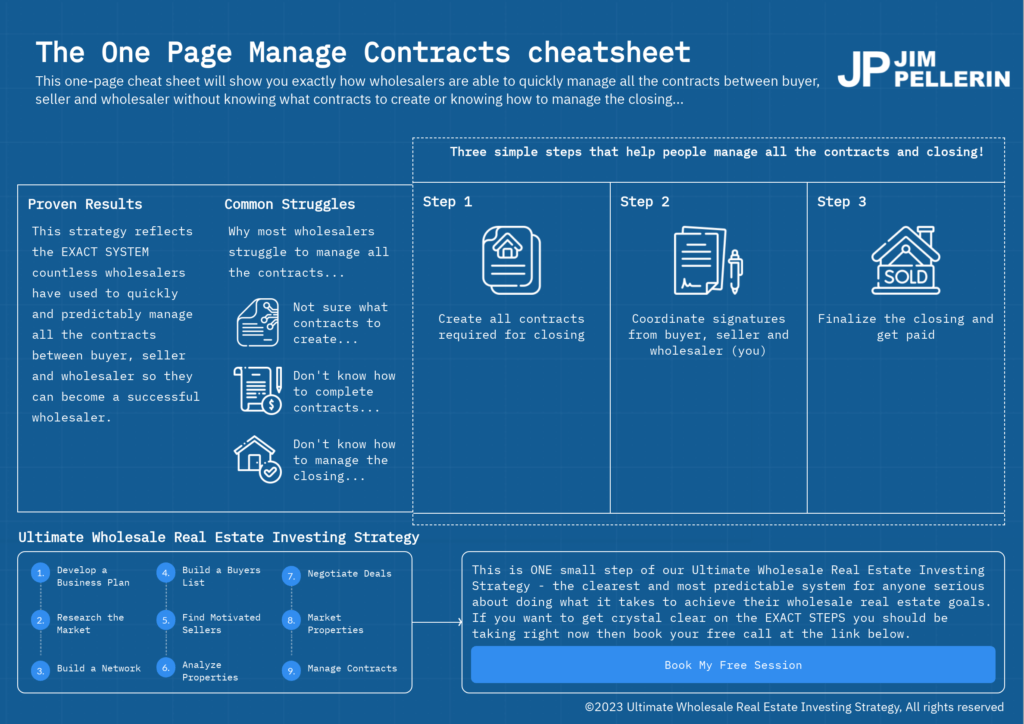
Managing contracts is a crucial step in the wholesale real estate business. It involves handling legal agreements between the buyer, seller, and wholesaler (you). Here are some steps you can take to manage contracts effectively:
- Hire a Real Estate Attorney: A real estate attorney can help you draft and review contracts to ensure they are legally sound. They can also advise you on any potential legal issues and help you navigate complex legal situations.
- Use Standardized Contracts: Use standardized contracts to ensure that all parties involved understand the terms and conditions of the agreement. Standardized contracts are readily available online or through your local real estate association.
- Include Contingencies: Contingencies protect you as the wholesaler in case the deal falls through. Common contingencies include the buyer’s ability to secure financing or the property passing a home inspection.
- Understand the Closing Process: Understanding the closing process is essential for managing contracts. The closing process involves the assignment contract and the transfer of ownership from the seller to the buyer and includes the exchange of funds, payment of fees, and signing of legal documents. Make sure you are familiar with the closing process and can assist your buyer and seller through this process.
- Communicate Effectively: Communicate effectively with all parties involved in the contracts. Ensure that everyone is clear on the terms and conditions of the agreement and keep all parties informed of any updates or changes.
- Follow Up: Follow up with the buyer and seller after the contract is signed to ensure that all parties are meeting their obligations. Follow up on any contingencies and ensure that the closing process is moving forward smoothly.
Managing contracts can be complex, but by hiring a real estate attorney, using standardized contracts, including contingencies, understanding the closing process, communicating effectively, and following up, you can manage contracts effectively and ensure that all parties involved are satisfied with the transaction.
Step 10 – Repeat
The final step in building a successful wholesale real estate business is to repeat the process. The key to success in wholesale real estate is consistency, and you should aim to repeat the steps outlined in this plan consistently to achieve your business goals. Here are some tips to help you repeat the process effectively:
- Track Your Results: Keep track of your results for each deal, including the time and effort required, the profit margin, and any issues that arose. Use this information to refine your process and make improvements for future deals.
- Continuously Learn: Continuously learn about the market, industry trends, and best practices in wholesale real estate. Attend seminars and conferences, read industry publications, and network with other professionals in the industry.
- Refine Your Marketing Strategies: Continuously refine your marketing strategies to ensure that it is effective in generating leads and finding new buyers and sellers. Test different marketing channels and tactics to see what works best for your business.
- Build Your Network: Continuously build and expand your network of buyers and industry professionals. Attend networking events, join real estate associations, and reach out to potential clients and partners.
- Stay Compliant: Ensure that you are complying with all state and federal regulations for wholesale real estate. Stay up-to-date on changes in regulations and adjust your business practices as needed.
By tracking your results, continuously learning, refining your marketing strategy, building your network, and staying compliant, you can repeat the process of building a successful wholesale real estate business. Remember, consistency is key, and the more deals you complete, the more successful you will become in this industry.
Disclosure: I may receive affiliate compensation for some of the links at no cost to you if you decide to purchase a paid plan. This site is not intending to provide financial advice. This is for entertainment and information only.
Check out the eBook or Paperbook versions
